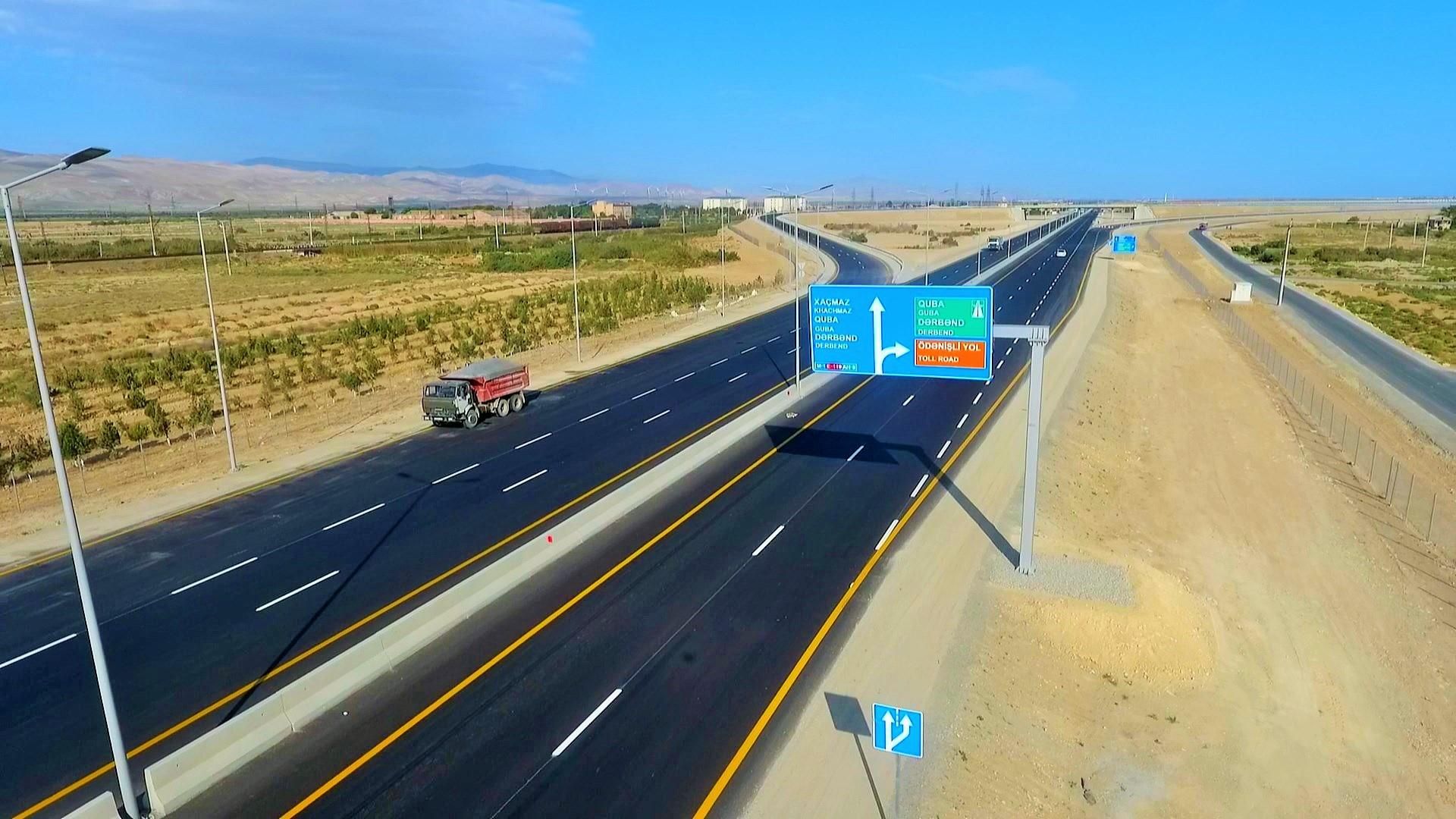Road infrastructure projects as integral part of Azerbaijan's economy

If we compare a country with a human body, then roads can be considered veins. Without veins, the human body cannot get proper nutrition and develop. Like a body without veins, a roadless country cannot provide the proper movement of people and transportation of products and is doomed to be stagnant. Thus, the construction of modern road and transport infrastructure is extremely important to ensure sustainable and balanced development of districts, towns, and cities of countries. If we leaf through the pages of history, we can see that big cities emerged on the roads. So, all countries in the world throughout history have been keen to develop road infrastructure.
Keeping pace with the rapidly developing modern world, Azerbaijan has always paid special attention to road infrastructure. Over the past three decades over 11,000 km of roads have been constructed in the country. Besides, in recent years, highway and local intercity and inter-rural highways in Azerbaijan have been fundamentally reconstructed and improved, as well as new highways, bridges, and overpasses have been built and put into use for the population.
However, road construction and maintenance are very expensive, and it pushes countries to borrow big money and get indebted. Meanwhile, countries found a way out and the solution is toll roads. This method enables a country to channel money collected from the road to maintain infrastructure. Yet, the legislation allows to construction of toll roads, but Azerbaijan has never used it. According to the legislation, toll highways can be created if there is a free highway whose quality meets the requirements of state standards, and this does not have a negative impact on the vulnerable population. Because using a variety of routes depends on choice. Toll roads have some pros. For example, the toll road is shorter than the conventional road and the speed limit is higher. Short distances and high speeds will allow users to save time and fuel. However, it should be noted here that necessary maintenance work must be done on traditional roads, as well.
As the saying goes, there's a first time for everything. Azerbaijan has started experiencing toll roads as well. The new 129-kilometer section of the state border highway M-1 Baku-Guba-Russian Federation, starting from H.Z. Taghiyev settlement, was defined as a toll road by the Cabinet of Ministers Resolution No. 309 dated September 5, 2023.
It is worth noting that the M-1 Baku-Guba-Russian Federation state border highway, which is a part of the "North-South" international transport corridor, starting from the H.Z. Taghiyev settlement, plays an important role in strengthening the transport infrastructure of Azerbaijan. This road will enable Azerbaijan to expand its opportunities to participate in transit transportation. In addition, it will reduce the delivery time of goods in transit and local freight transportation through the territory of the country and it will give an additional impetus to the development of tourism in the region.
State Agency of Azerbaijan Automobile Roads applied to the Tariff (price) Council for the determination of fares for the use of that road. Tariff Council determined fares and condition for the new highway and they are as follow:
1. AZN 0.093 ($0.053) per 1 km (AZN12 ($7.06) for the entire road) for passenger cars and trucks weighing up to 3.5 tons with VAT;
2. AZN0.116 ($0.065) per 1 km (about AZN15 ($8.8) for the entire road) for trucks and other machines and mechanisms with a combined weight of more than 3.5 tons including VAT;
3. AZN0.078 ($0.046) per 1 km (AZN10 ($5.88) for the entire road) on buses with VAT;
4. AZN0.194 ($0.11) per 1 km (AZN 25 ($14.71) for the entire road) for the use of toll roads for trailer and semi-trailer vehicles, including 3-4 axles or TIRs, together with VAT.
5. The amount of the payment for the trip is determined by taking into account the technical grade of the highway, the distance traveled by the vehicle, weight, and the number of trips per month with the monitoring conducted by the relevant institutions.
6. According to the decision of the Tariff Council, the State Agency of Azerbaijan Automobile Roads will present its proposals for determining the weekly, monthly, and annual tariffs for the use of the toll road in accordance with international practice.
7. The length of the paid part of the road built in the direction of the Baku-Russian Federation is 129 km, the number of traffic lanes is 4, and the number of entry-exit points is 6. Each station has 2 input and 2 output lines.
8. The decision enters into force on October 20, 2023.
As it was stressed toll roads are widely used in international practice. Approved tariffs are optimal compared to regional countries. The decision can be found in the "Decisions of the Council" section of the official website of the Tariff (price) Council (www.tariff.gov.az).
---
Qabil Ashirov is AzerNews’ staff journalist, follow him on Twitter: @g_Ashirov
Follow us on Twitter @AzerNewsAz
Here we are to serve you with news right now. It does not cost much, but worth your attention.
Choose to support open, independent, quality journalism and subscribe on a monthly basis.
By subscribing to our online newspaper, you can have full digital access to all news, analysis, and much more.
You can also follow AzerNEWS on Twitter @AzerNewsAz or Facebook @AzerNewsNewspaper
Thank you!

